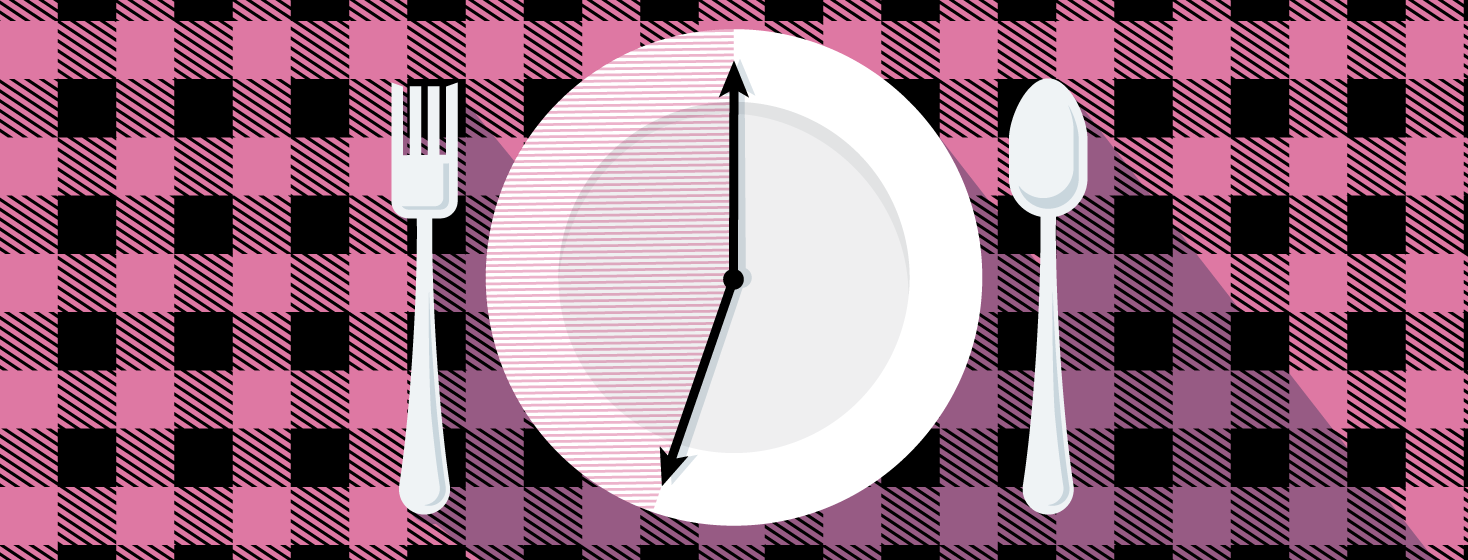Intermittent Fasting & Eczema
Intermittent Fasting (IF) is a type of eating pattern that cycles between periods of eating and fasting. It doesn’t emphasize what you should eat, but rather what time you should eat.
Why do people fast?
Historically, fasting has been a part of human evolution for centuries. From our ancient hunter-gatherers, who at times couldn’t find anything to eat, to fasting for religious or spiritual purposes. Nowadays, many people choose to fast for a variety of reasons, including weight loss, improvement in blood pressure, decrease inflammation and...eczema!
Featured Forum
View all responsesWhat does fasting do?
According to a Harvard article, “The entire idea of IF is to allow the insulin levels to go down far enough and for long enough that we burn off our fat.” Insulin, a hormone created in the pancreas, is the only way sugar can enter our cells. When our bodies take time to break down the foods we eat, as long as we don’t snack, our insulin levels will decrease and the fat cells will then release the stored sugar and use it as energy. Not only does weight loss occur when insulin levels are down, but so does a decrease in inflammation.1 However, this easy-flow process normally occurs in those who have a healthy gut. But what about those who don't?
Can fasting help eczema?
Research shows a correlation between those who suffer from eczema and a poorly functioning gut. A healthy gut serves as a barrier to prevent undigested food particles and toxins to enter the bloodstream. However, when an intestinal wall is damaged, it allows bad substances to “leak” into the body, and show up as inflammation on the skin.
How are gut inflammation and leaky gut related?
This is the case for many eczema warriors. The carbohydrates we take in are not being broken down properly and turned into energy, so they end up remaining in our gut causing inflammation. Dr. Amy Myers says, “Gut inflammation caused by leaky gut can also impair the protective function of your skin, which can increase the severity of inflammation and worsen eczema symptoms.”2
This is why IF can be so beneficial to supporting and managing one’s eczema. The more time we give our bodies to break down the enzymes and substances stored in our gut, the more fat is broken down, lessening the probability of a leaky gut and inflammation.
What was Poh Siok Khoon's experience?
Poh Siok Khoon is just one of the eczema warriors who were able to benefit from this practice. In a Yahoo article written in 2016, Poh Siok Khoon claimed that within just two weeks of fasting, she noticed a significant decrease in her eczema. “Fasting saved my life and I apply the principles of fasting in my daily life. I have overcome eczema, stomach flu, and other health issues, and I am thankful for the general good health for the last 16 years."3
Did intermittent fasting work for me?
I, too, tried intermittent fasting back in July of 2017. I did it for weight loss purposes until I realized how much it was influencing my skin and managing my eczema. One of the immediate and noticeable changes was my increase in energy. I was waking up energized in the mornings and without coffee or food in my system! It was also a lasting energy high, very different than “crashing” from just a few hours of having caffeine.
How did it change the amount that I sweat?
Also, as someone who works out 4 times a week on average, I was sweating significantly more. Growing up, it was nearly impossible to break a sweat. Instead of sweating like everyone else on a hot day or during gym class, blood would rush to my face and I would look like a red hot tomato! I never thought I would say this, but I am sweating profusely now and I love it! I feel healthier and as if all of the gunk and chemicals in my system are being drained out through my pores.
How did it impact my skin?
This, in turn, has made my skin clearer, smoother, and less irritated. The itchiness has decreased significantly and I’m able to handle and heal the flares as quickly as they come. Although I don’t do it as daily as I used to when I first started, I tend to follow IF at least 3 times a week.
There are different methods of IF, the most popular being a 16-hour fast or fasting 24 hours once or twice a week.
Please note that there is not a sufficient amount of evidence of the effects of IF on eczema. It is suggested you use an eating approach that works best and is sustainable for you!

Join the conversation